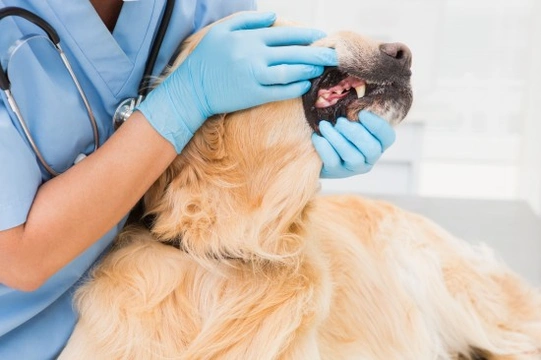
My Dog Lost a Tooth: What Should I Do?
When your dog is under one year old, they will lose a total of 28 teeth during this period of time, as their baby teeth fall out and they grow in their adult set. The adult dog has 42 teeth in total, and if they lose one of these permanent teeth, they will not grow a replacement!
Hopefully your dog will have strong and healthy adult teeth for life, and will not suffer from any dental problems or tooth loss- particularly if you take pains to keep their teeth clean, well maintained and in good condition from a young age! However, tooth loss in adulthood can and does sometimes happen, and dog owners are often unsure of how much of a problem this is, or how to proceed if it happens to their own pet. Read on to learn more about what it means for your dog if they lose one of their adult teeth.
Normal tooth loss
As mentioned, the loss of the baby teeth in the dog is a natural process, and you may actually be able to find a couple of these teeth as they are lost, although most of them will be swallowed and digested. For the same reasons, if your adult dog loses a tooth, you may not even become aware of this unless you notice the resultant gap left in their mouths, and the teeth and gums of the dog can migrate and move over time too, often shifting around to close the gap left by a lost tooth.
Loose teeth in the adult dog
If you notice that your adult dog has one or more loose teeth, such as by observing them chewing and seeing the teeth shifting or moving, it may not be too late to retain the teeth and keep them from being lost. Loose teeth, particularly if more than one tooth is affected, can be a sign of poor dental health or other issues, so it is worth getting your dog to take a look at your dog’s teeth if you spot a problem at this stage.
Damage to the mouth and tooth problems
If your dog hurts their face or mouth, such as by biting into something that is too hard or by sustaining an injury such as being hit by a car, it is again important to get them checked out by your vet. Even if your dog has not obviously lost a tooth, they may have acquired a crack, fracture or other damage, and any impact or damage severe enough to potentially knock a tooth loose or out is also severe enough to necessitate a veterinary check-up.
If your dog loses one or more teeth due to an impact or damage, this too requires a vet visit, both to check your dog’s general health and any damage, and to ensure that the tooth lost was complete, not leaving a section in the gum that can develop an abscess or other problem.
Poor dentition
Bad oral hygiene in the dog can lead to tooth loss, and at the stage that bad dental health leads to the loss of teeth, it is likely causing other problems for your dog too. One loose, lost or rotting tooth caused by bad dental hygiene is unlikely to be a standalone issue, and removal of loose teeth and a thorough dental clean-up can help your dog to keep their remaining teeth, as well as stopping the pain and discomfort that may be accompanying the problem.
Tooth removal
If your dog’s mouth and teeth are in a bad enough state to require a veterinary dental investigation, clean up and maintenance, it is entirely possible that your vet may need to remove some of the worst affected teeth too. This process if often charged for on top of the price of the dental procedure on a per-tooth basis, and the cost per tooth removed can vary considerably too, as some teeth are relatively easy to remove, while others require a specialist veterinary dental specialist due to the size and strength of the roots.
Is it ok if my dog swallows a tooth?
Few dogs live to a grand old age while retaining all of their teeth in perfect condition, and you may be surprised when your vet checks your dog’s teeth to learn that they have already lost one or more of them. The chances are that when your dog does lose a tooth, they will have swallowed it, and this too goes a long way towards masking the actual loss of the tooth itself!
Teeth are most commonly lost while chewing on something or when eating, further raising the chances of the tooth being digested. While it is obviously not ideal for your dog to swallow a tooth, particularly a large one, this process happens more often than you might realise, and only very rarely does the actual digestion of the tooth cause a problem.



